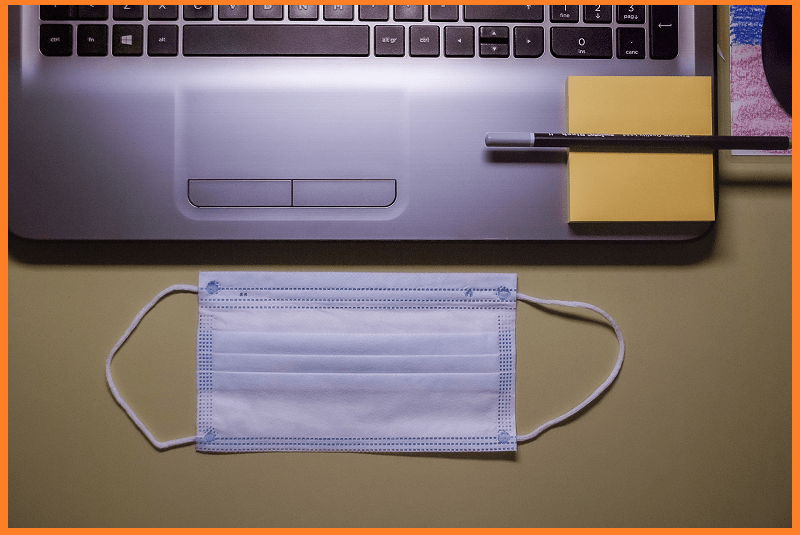
Keeping Employees Safe From Covid-19 Into 2021
Early 2020 saw the deadly Coronavirus spread from Asia into Europe, the US, and beyond. As we approached 2021 and news of vaccines gave everyone a little bit of hope, the virus didn’t stop and as we get the new year underway, Covid-19 is still killing people in record numbers, day after day.
As an employer, there is a duty of care placed upon you that extends to all staff members. The health, safety, and well-being of your workforce come under your responsibility and every reasonable measure should be undertaken to ensure the safety of your staff.
While work from home orders are in effect where possible, some sectors and organizations simply cannot adopt such a policy, and staff are required to be present at a property in order to help it run. Therefore, the responsibility of a Covid-19 safe workplace falls upon any employer that benefits from staff attendance.
As deadly as the virus is, it is exceptionally easy to prevent it from spreading and some basic policies should be enforced whenever and wherever necessary:
- Hand washing
- Face masks
- Social distancing
- Education
- Vaccination
The regular washing of hands and wearing a face-covering where applicable are the most basic protection measures one can adopt during this time. Social distancing should be applied if possible and should extend to all staff. While a vaccine might not be available to everyone at the moment, all measures should be taken in order to encourage staff to be vaccinated, and educating employees on the dangers of not taking preventative measures or vaccination should be a priority.
Wash Hands Thoroughly
When the virus became a pandemic, the first piece of advice given by medical professionals and then conveyed by worldwide governments was to wash your hands regularly. This simple act is known to have a significant effect when it comes to the prevention of virus propagation.
Key advice states to wash your hands for at least 20 seconds under warm running water with either soap or hand wash. Many established hygiene companies have now developed hand-washes with a specific chemical formulation in order to combat Corona-virus.
It is advised that you should always wash your hands following specific activities such as when arriving home after being outside anywhere, before handling or eating food, and especially following a cough or sneezing incident.
Keep Mouths Covered
Wearing a covering over the face has been specifically advised when in close proximity to others or when in an enclosed space such as an office or meeting room. There is strong evidence to support the advice that face masks help stop Covid from spreading, despite much social media misinformation.
Coronavirus is an airborne virus meaning that it spreads by dispelling microscopic particles such as those that leave our mouth when we talk, cough or sneeze, and blocking the path of these particles and catching them on a face covering can greatly reduce the chance of the virus spreading.
Care should be taken to encourage people to also wash their face coverings with hot water and antibacterial disinfectant if they use a reusable mask, or to frequently change their disposable masks and safely dispose of them as they would a used tissue.
Keep at Least 2m Apart
Wherever possible, social distancing rules should be rigorously enforced in the workplace. In conjunction with hand-washing and face covering, social distancing has been proven an effective method of halting the spread of Covid. Government guidelines indicate that no less than 2 meters between persons will be sufficient and the 2-meter rule should always be adhered to or even better, 3 meters if possible.
This does not just apply to the placement of chairs in an office or the tables of a cafeteria but is an advised distance between any and all personnel at all times. The basis of this rule is that in 90% of cases, droplets from the mouth or nose from speech, coughing, or sneezing don’t travel more than 2 meters when expelled.
It is recognized that social distancing isn’t possible all of the time and some sectors require staff to be closer together than the advised 2 meters. In these cases, other enforcement options should be considered such as hand washing and the usage of face coverings.
Inform and Educate
As with anything that is new and uncharted territory, education about the subject matter is of vital importance. Even now, one year since the beginning of the pandemic, there is a lot of misleading information circulating, generally in social media. While some of it might be based on half-truth, some are blatant lies.
A recent study found that 1 in 4 social media videos contained misinformation about Covid-19. Some of this has included that 5G networks were the source of the virus, that the lifetime of the virus is only 12 hours and that hands sanitizers don’t work because they are antibacterial and not antiviral.
It is impossible for a wireless phone network to transmit anything other than digital data and this theory is one of the more ridiculous, however, it did catch on and caused vandalism towards many 5G cell towers highlighting the power of misinformation..
The lifetime of the virus actually varies depending on where it has been and calculated precautions should always be taken as it can last from 4 hours up to 5 days. Misinformation about hand sanitizers is probably the most dangerous since it could discourage people from washing their hands properly, if at all. Most hand sanitizers and soap have been conclusively proven to inactivate the Covid-19 causing string, SARS-CoV-2.
Encourage Necessary Treatment
News of multiple pharmaceutical companies, including AstraZeneca, Pfizer, and Moderna developing vaccines against the virus have been great news for the world. However, it was recently announced that these companies cannot produce anywhere near enough at the rate that the world needs them and therefore Covid-19 will be around for a while longer.
While most governments are working hard to vaccinate their citizens, priorities are being arranged that will last well into 2021. These include vaccinations for frontline staff such as doctors and nurses, the elderly, and care home residents. Therefore, it has been theorized that the general population won’t be vaccinated until sometime later this year, which could equate to most of your staff.
Because of this, advising staff to be vaccinated as promptly as possible must be seen as a priority when vaccinations for a specific populace become available. Also, most vaccines require a second inoculation which doctors are advising is essential if the process is to be effective. On top of this, it would be wise to inform staff that even though they might have been vaccinated, they can still pass on the virus, so all of the outlined measures should still be taken so as not to propagate the disease among those yet to receive treatment.


